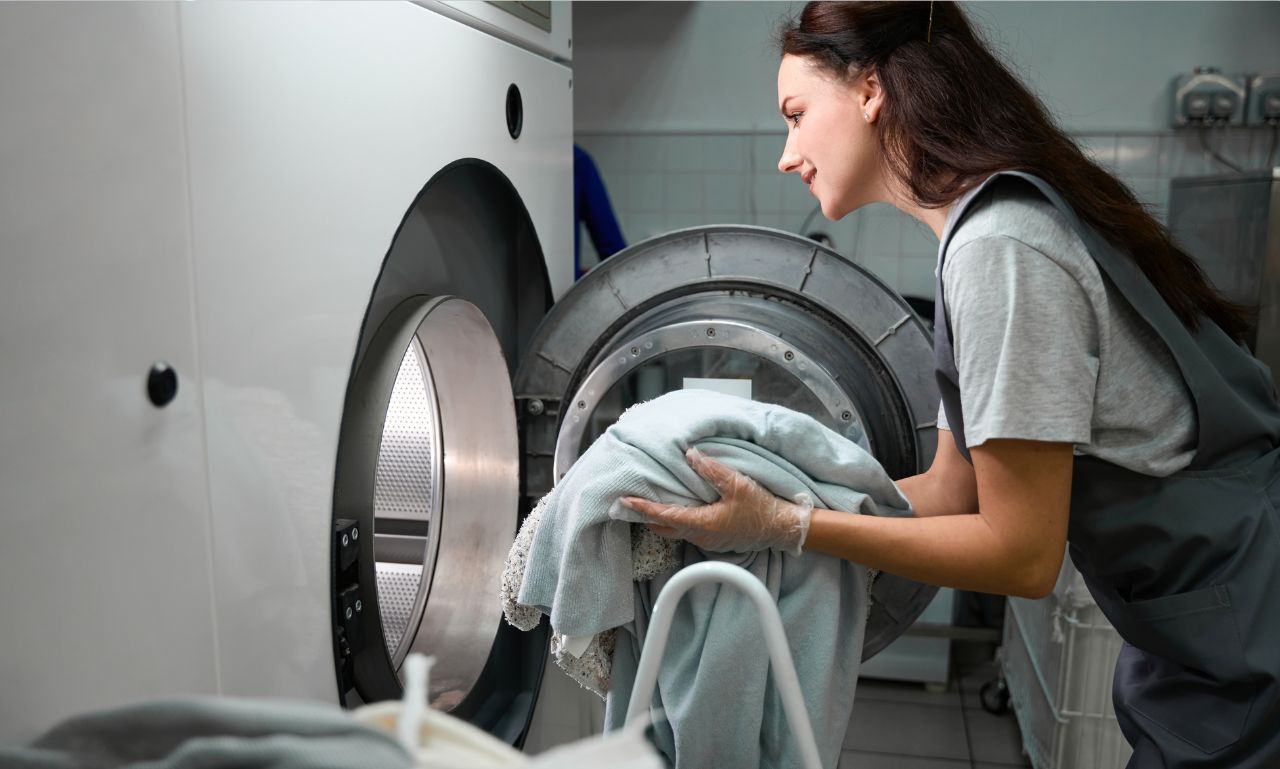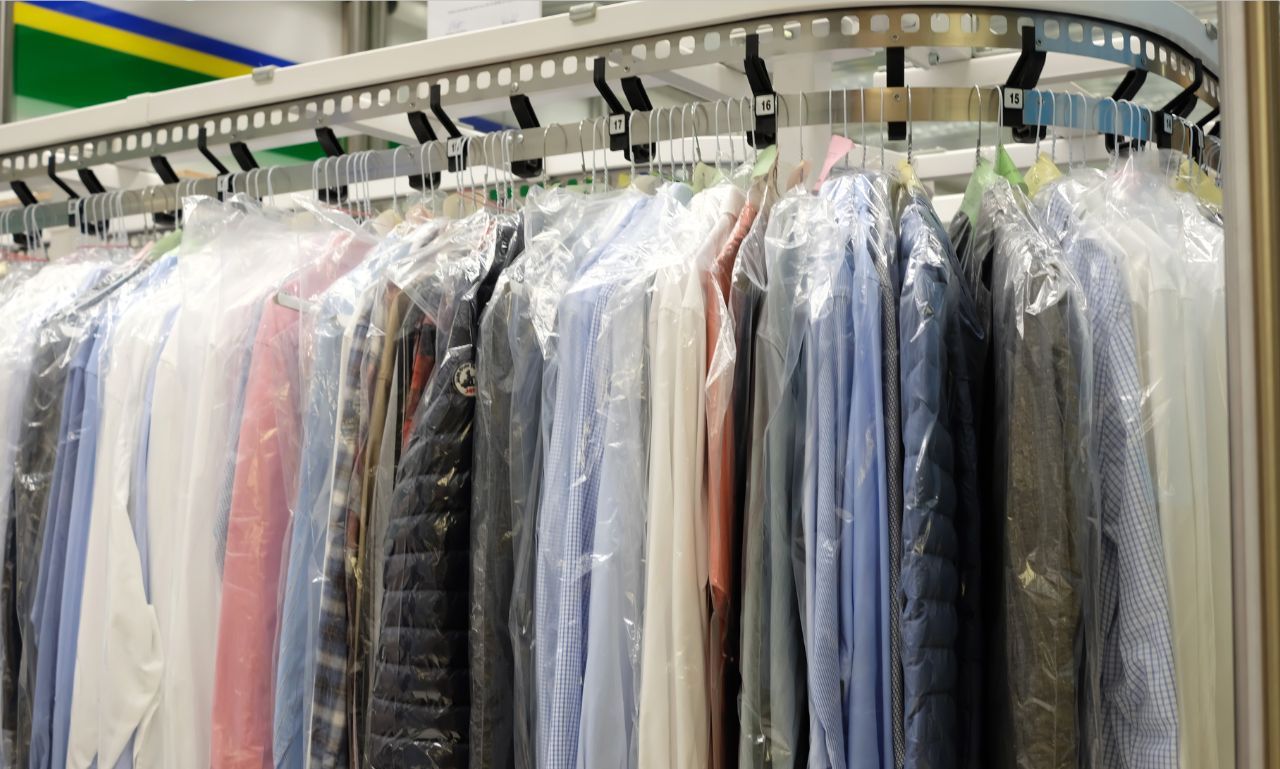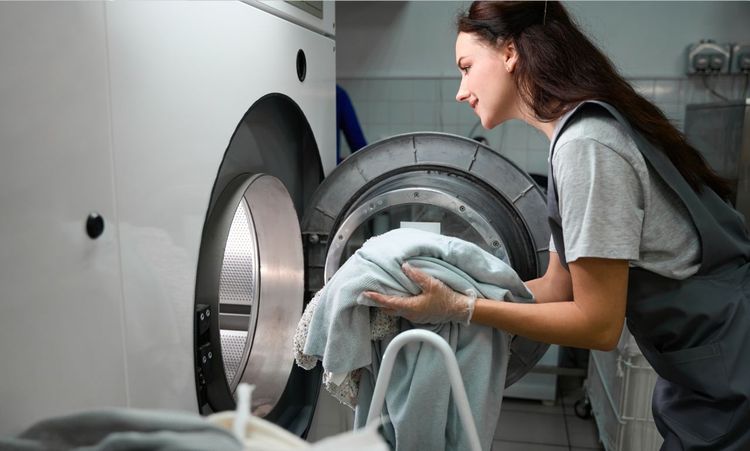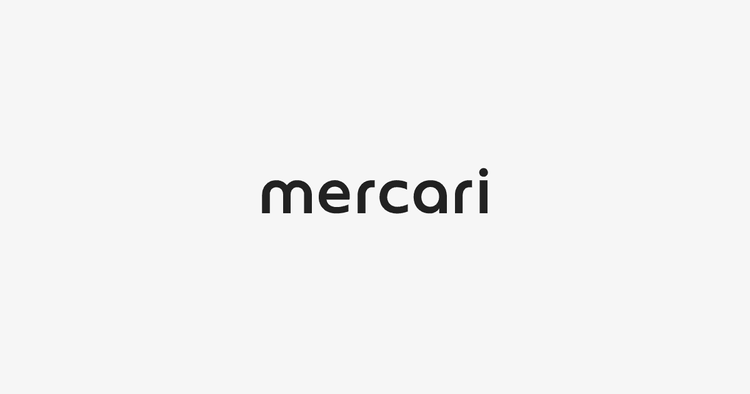Starting a dry cleaning business can be an attractive option for entrepreneurs looking for a stable and essential service to offer their community. Whether you're a seasoned business owner or someone exploring new opportunities, the dry cleaning industry provides a unique blend of challenges and rewards. But is it the right venture for you?
This article will explore the pros and cons of owning a dry cleaning business.
What are the Pros of Owning a Dry Cleaning Business?
Flexible Working Hours
As a business owner, you can set your hours, decide on the best times to operate, and determine how much you want to be involved daily. This flexibility primarily benefits individuals who balance their work life with personal commitments or other businesses. If you're a night owl, you could adjust to working late hours or even weekends, offering convenience for clients with busy schedules.
Environmentally Friendly Options

Many modern dry cleaning businesses now use eco-friendly solvents and methods, such as liquid carbon dioxide or wet cleaning, which are safer for the environment and employees.
If you're passionate about sustainability, this is a great way to differentiate your business. For example, a dry cleaning franchise in Seattle saw a 20% increase in customers after switching to greener cleaning methods.
Green dry cleaning often uses less harmful chemicals and is a more sustainable approach to fabric care. Offering eco-friendly cleaning services can be a great way to differentiate your business from competitors.
Easy to Control Workload & Maintenance
Managing a dry cleaning operation is relatively straightforward in terms of workload. The tasks are repetitive, and once the business is set up, the day-to-day operations often require less intervention. You don't need a complex inventory system or extensive staffing to keep things running smoothly. You may hire staff to help as the business grows, but you can quickly scale your workload according to demand.
Minimal Inventory Requirements
Unlike retail businesses that need a wide array of products, dry cleaners typically only need cleaning solvents, hangers, bags, and certain accessories like starches or fabric softeners. The primary focus is on providing a service rather than managing a large stock of goods.
Higher Customer Retention Rate
Many customers use dry cleaning regularly, which leads to high retention rates. Once a customer is satisfied with your service, they are likely to return. This makes customer loyalty a crucial factor in the success of your business. The key to retention is delivering consistent, high-quality work and maintaining excellent customer service.
Multiple Income Streams
In addition to regular dry cleaning, you can expand your offerings to include laundry services, ironing, alterations, and even shoe repairs. Many customers are looking for a one-stop shop for their cleaning and maintenance needs, so diversifying can help increase revenue.
What are the Cons of Owning a Dry Cleaning Business?

Staffing Challenges
Staffing is often one of the most challenging aspects of managing a dry cleaning business. Finding reliable, trained employees who can handle the equipment, deal with customers professionally, and perform the work at the level of quality you expect can be challenging. Additionally, the turnover rate in the dry cleaning industry can be high due to the seasonal nature of the work.
Equipment Maintenance
Dry cleaning machines and equipment are costly and require regular maintenance to ensure they operate at optimal levels. Failing to perform routine checks can result in expensive repairs or replacements, potentially impacting business operations.
Competition Concerns
The dry cleaning industry is competitive, especially in urban areas or markets with several established players. Many small dry cleaning businesses are forced to compete with national chains or more specialized services. Business owners must differentiate themselves through superior customer service, innovative services, or unique value propositions to stand out.
Seasonal Fluctuations
Dry cleaning businesses often face fluctuations in demand, particularly during off-seasons. People may be less likely to dry clean bulky winter garments during summer, leading to slower sales. Managing these periods can be tricky, as you still need to cover operating costs during slower times.
Limited Growth Potential
Even though having a dry cleaning business might be lucrative, there may not be much room for expansion, mainly if you only operate in one area. A well-planned strategy and a sizable monetary commitment are frequently needed for expansion. Opening more sites or providing new services could be part of scaling the business, but even in those cases, expansion was limited by competition and market demand.
Marketing and Promotion
Effective marketing can be a struggle in the dry cleaning business, especially if you're competing against well-established names. Building a strong online presence, utilizing social media, and offering promotions are critical to gaining new customers. However, marketing requires continuous effort and investment, which can be challenging for a small business.
Is Owning a Dry Cleaning Business Profitable?
Yes, running a dry cleaning business may be lucrative with the proper management. As with any company, several elements, including location, customer service, and effective operations, are critical to success. You must carefully organize your budget, comprehend the prices, and invest in high-quality equipment to maximize revenues.
How Do I Succeed in a Dry Cleaning Business?

Here are a few tips for succeeding in the industry:
- Offer exceptional customer service to foster loyalty.
- Stay updated on industry trends, especially regarding eco-friendly practices.
- Diversify your income streams by offering additional services like laundry, alterations, or shoe repairs.
- Invest in high-quality equipment and prioritize regular maintenance.
- Market your business effectively through local advertising and digital channels.
Conclusion
Although it can be fulfilling, owning a dry cleaning business is challenging. Flexible work schedules, eco-friendly choices, and a devoted clientele are all possible, but you must also deal with personnel shortages, equipment upkeep, and seasonal variations. Understanding the benefits and drawbacks of running a dry cleaning company and making the necessary preparations can position you for success in this cutthroat but vital sector.




